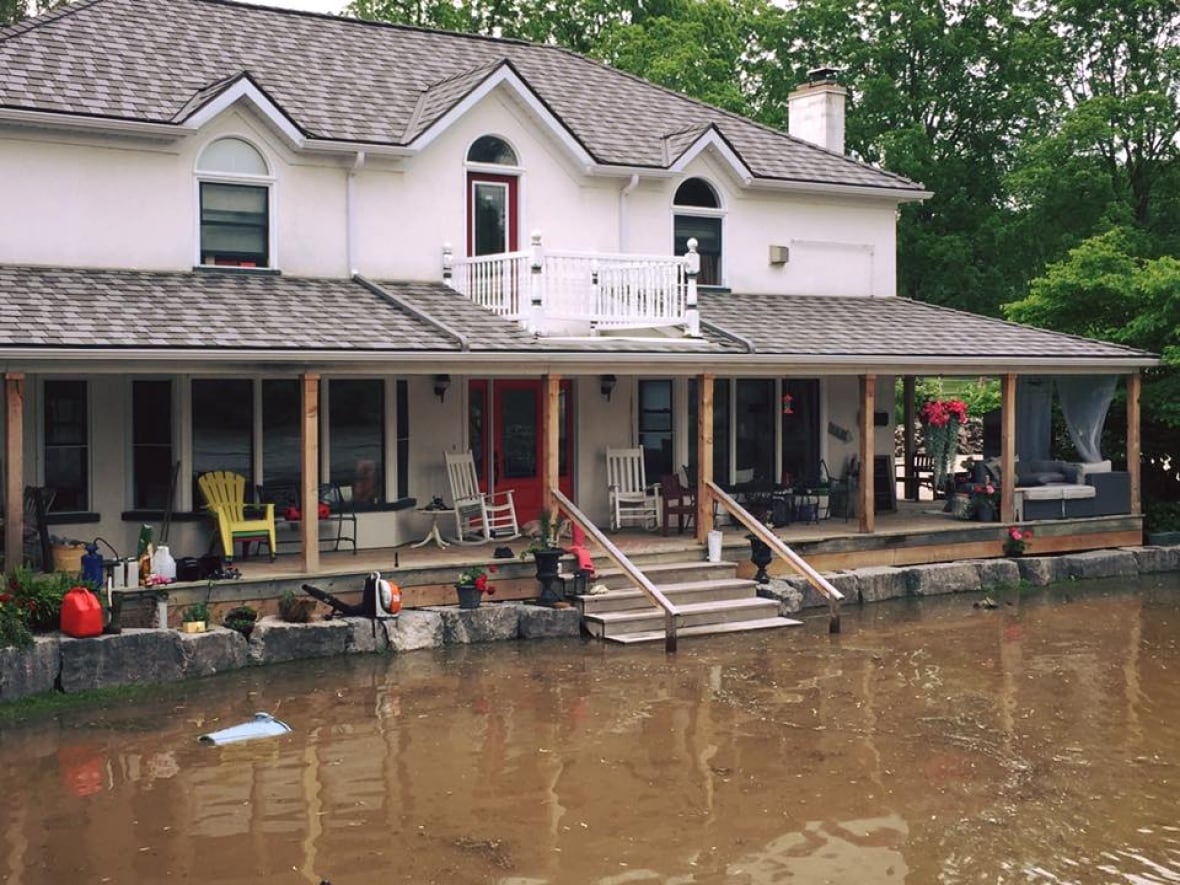With flash flooding in Texas, local experts explain why it's unlikely to happen in Waterloo region, Guelph
Texas floods caused by rainfall equivalent to half the region's annual precipitation, says flood official

The type of flooding that devastated communities in parts of Texas is unlikely to happen in Waterloo region and Guelph, according to officials.
Extreme rainfall over the July 4 weekend caused catastrophic flash flooding in parts of Texas, killing at least 89 people. Seventy-five of the confirmed deaths statewide occurred in Kerr County, including 27 children.
Vahid Taleban, director of flood operations with the Grand River Conservation Authority (GRCA), said rainfall like what occurred in Texas — about 350 mm in a few hours — is rare in Ontario, adding it's "equivalent to almost half of our annual precipitation here."
"The likelihood of something like that happening here is very, very slim," Taleban said.
That being said, both urban overland flooding and riverine flooding are concerns in the Grand River watershed. Taleban said overland flooding occurs when heavy rainfall overwhelms drainage systems, forcing water across roads and into buildings. Riverine flooding, caused by rising river levels, is less common he said, thanks to GRCA's network of dams and reservoirs.
Taleban said winter and spring used to be flood season in southern Ontario, but as a result of climate change the area is at risk year-round.
How do we find out about a flood?
The GRCA monitors weather conditions and river flows throughout the watershed and issues flood warnings to municipalities when there is a risk. GRCA does not send alerts directly to the public, unless a person signs up for them through the authority's website.
"The best source of information for residents is to consult with their local emergency management coordinators," said Taleban.
"Our roles and responsibilities are to monitor weather conditions, basically run a forecast scenario or forecast models to predict potential for flooding and notify our municipal partners," he said.
"We always post any warnings that we have for municipal partners on our website so the public can benefit from seeing those."
How long it takes for warnings to go out to the public can vary depending on the type of event, said Taleban. Flooding caused by melting snow can often be predicted days in advance, while flash flooding from intense storms, like what occurred in Texas, may come with little or no warning.
A postcard setting with a constant risk
West Montrose is a scenic municipality and home to Ontario's last remaining historic covered bridge. It's also home to a portion of the Grand River that has repeatedly flooded.

But Gow remembers the ugly side to her time along the Grand, including multiple floods, the worst of which was in 2017, when water reached her front door.
Gow said they lost electricity, gas and sewage capabilities for days.
"We had to, you know, rent a porta potty."
"When you live on the river you always live in, I guess it sounds dramatic, but like almost a fight or flight kind of state," she said. "I don't know what was worse, the really bad flooding or just always being on alert."
Gow moved away from along the river in 2021, saying flooding was one of the major deciding factors.

Guelph is low risk
In the city of Guelph, officials say the risk of severe flooding is low as a result of solid infrastructure, preparedness planning and close coordination with the GRCA.
Eric Lucko, Guelph's community emergency management coordinator, says he's always watching the weather.
"Eighty, 90 per cent of my job is preparing for those events," he said.
He said if there's an issue, engineers at GRCA, like Taleban, would notify the city and they can get the message out. Lucko said the city does not operate its own independent alert system but does follow a flood emergency response plan.
"We can notify the public through our communications department. We can dispatch persons through parks or public works to close low lying areas like park trails or passovers," said Lucko.
He said Guelph has some "pretty resilient infrastructure."
"So the risk of severe flooding is not high and the impact would not be high."
While most of Guelph is well protected, Lucko noted that some homes built before modern floodplain regulations remain at risk.
Where flooding is most likely
In Waterloo region and Guelph, areas closest to rivers, streams, and low-lying areas face the highest risk for riverine flooding. When it comes to overland flooding, any area with limited drainage could be vulnerable during a particularly heavy rainfall.
Taleban said preventative infrastructure like flood walls and dykes in communities like Cambridge and Bridgeport help reduce the impact of flooding. However, he said flooding is a natural event that cannot be fully eliminated.
"It's a natural disaster that will happen whether we like it or not," he said. "We can just try to mitigate the impacts."
With files from the Associated Press
